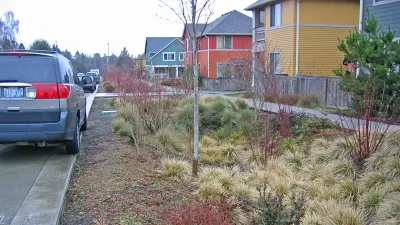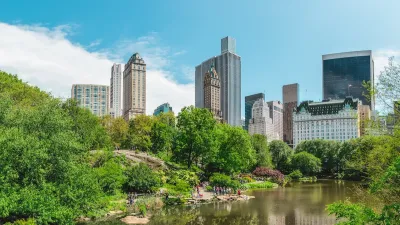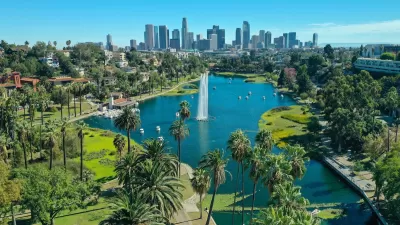The Green Infrastructure Toolkit lists 25 actions local governments can take to transform crusty, impermeable urban landscapes into vibrant, spongy ecosystems that preserve water as a resource and protect against its potential destruction in floods.

Every community is faced with managing the potential impacts of extreme weather events, especially in an era in which those events are increasing in both frequency and intensity. To prepare for the challenges ahead, neighborhoods, towns, and regions need proven strategies for not just surviving threats, but for assuring long-term resilience. And key goals for those strategies should include approaches that preserve and leverage natural systems of protection.
In honor of World Water Day 2023 today, Hazel Borys and co-authors Kaid Benfield, Scott Bernstein, Paul Crabtree, Bruce Donnelly, Scott Doyon, Susan Henderson, Steve Mouzon, Milt Rhodes, and Colleen Sklar launched the Green Infrastructure Toolkit, which contains strategies for preserving protective ecosystems, addressing urban heat islands, and building resilience into long-term planning.
Borys says, "We’re excited to see the positive impact that green infrastructure can have on our communities. By working together and sharing our experiences, we can make a lasting difference for future generations. Let’s get spongy!"
FULL STORY: Green Infrastructure: Let’s get spongy!

Planetizen Federal Action Tracker
A weekly monitor of how Trump’s orders and actions are impacting planners and planning in America.

San Francisco's School District Spent $105M To Build Affordable Housing for Teachers — And That's Just the Beginning
SFUSD joins a growing list of school districts using their land holdings to address housing affordability challenges faced by their own employees.

The Tiny, Adorable $7,000 Car Turning Japan Onto EVs
The single seat Mibot charges from a regular plug as quickly as an iPad, and is about half the price of an average EV.

Seattle's Plan for Adopting Driverless Cars
Equity, safety, accessibility and affordability are front of mind as the city prepares for robotaxis and other autonomous vehicles.

As Trump Phases Out FEMA, Is It Time to Flee the Floodplains?
With less federal funding available for disaster relief efforts, the need to relocate at-risk communities is more urgent than ever.

With Protected Lanes, 460% More People Commute by Bike
For those needing more ammo, more data proving what we already knew is here.
Urban Design for Planners 1: Software Tools
This six-course series explores essential urban design concepts using open source software and equips planners with the tools they need to participate fully in the urban design process.
Planning for Universal Design
Learn the tools for implementing Universal Design in planning regulations.
Smith Gee Studio
City of Charlotte
City of Camden Redevelopment Agency
City of Astoria
Transportation Research & Education Center (TREC) at Portland State University
US High Speed Rail Association
City of Camden Redevelopment Agency
Municipality of Princeton (NJ)





























